Technology 20
Digital Surveillance is Today’s Nuclear Weapon

Edward Snowden: Digital Surveillance is Today’s Nuclear Weapon
June 3, 2019
Translated and edited by Walter Lippmann for CubaNews.
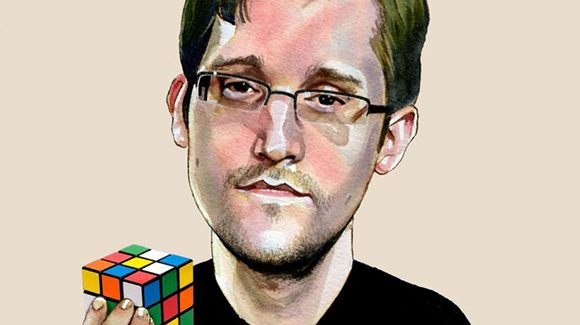
Edward Snowden is regarded by the United States as a traitor for his leaks. Photo: Financial Times.
Edward Snowden, video conferencing from Moscow before an audience at Dalhousie University (Halifax, Canada), denounced that the U.S. government tends to hijack and militarize telecommunications innovations, taking advantage of the natural human desire to communicate and exploiting it for unlimited power.
“They took our nuclear capability and turned it into the most horrible weapon the world had ever witnessed,” Snowden said, arguing that the 21st century is seeing the same trend, but with computer science: “iits reach is unlimited… but not the safeguard measures!
Snowden argues that modern militarized technologies, with the help of social media and technological giants, allow governments to become “all-powerful” in their ability to monitor, analyze, and influence people’s behavior.
“It is through the use of new platforms and algorithms […] that we can change our behavior. In some cases, they are able to predict our decisions, and they can also push them toward different outcomes,” he said.
For Snowden, the need for human beings to belong to social groups is being exploited, as network users voluntarily consent to provide their private data by signing carefully drafted agreements that almost no one ever reads.
“They have hundreds and hundreds of pages of legal jargon that we are not qualified to read and evaluate and yet are considered binding on us. And now these institutions, which are both commercial and governmental, […] have structured and entrenched it into the most effective means of social control in the history of our species,” he concluded.
Edward Snowden is known for leaking information about U.S. government spying programs to society through the NSA and the CIA.
In video, Snowden on how digital companies and governments use our private data
How Does Google Get Away With It?

How does Google get away with always knowing where you are?
Translated and edited by Walter Lippmann for CubaNews.
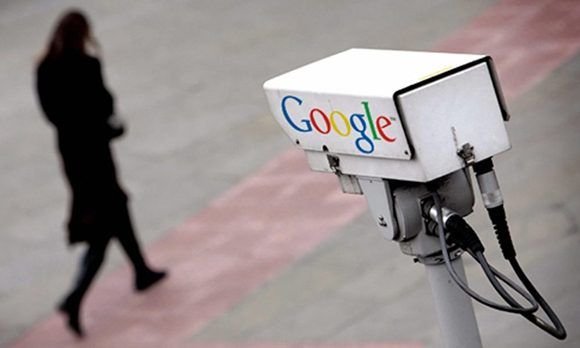
The services Google offers on devices with Android and iOS operating systems store your location regardless of terminal settings. Photo: TECHcetera.
The services Google offers on devices with Android and iOS operating systems store your location regardless of terminal settings. Kevin Curran, professor of computer security at the Faculty of Computer Science and Engineering at the University of Ulster (Ireland) explains to Sputnik how Google gets away with it.
“In 2007, it was discovered that Google logged climate access points using the company’s vehicles on the streets. In 2017 we saw the company sell the unique addresses of cell phones stored on telephone poles. Now we’ve discovered that when you deactivate the location, data is still transmitted when we receive weather updates,” Curran explains to Sputnik.
In other words, Google knows where you are even though you’ve explicitly disabled location settings in your cell phone settings. Curran points out that the blame lies with the custom ads in the applications. Between April and June, Google made $32 billion in profits, 90 percent of which came from advertising.
“People find it cheaper to buy ads to show on their cell phones, but Google doesn’t make much money from them. What’s really important for Google is to know where you are,” he explains. So the company offers those who buy those ads a tool that gives them access to data related to the demographics of a particular region, allowing them to target the people they’re interested in. That’s how Google makes real money.
“The more data – especially about the location – the more ads and the more benefits for Google. So what they really want is for you not to deactivate your location history. That’s why they tell you that [giving up your location] will make the ads more specific and the services they can offer you will be better. And to a certain extent, it’s true,” the specialist points out.
The problem would not exist if the settings of the device gave the user full authority over their personal data. If, when deactivating the location, it would not end up in the hands of third parties. But the problem exists and it is then when the responsibility falls on the company. Google should better specify what the user gets and doesn’t get by disabling location settings, Curran reports.
“Some people have never entered the Google activity log, but the log shows you where you’ve been. If you have it activated (which is what most people do), you can see all the trips you’ve made, how high up the street you’ve been, and the pictures you’ve taken when you were there. If you go to Google’s ‘My Activity’ tab, you’ll see not only your search history, but also the places you’ve been,” he warns.
Also, how many times have you opened WhatsApp or any of the other apps on your mobile phone? The situation is aggravated by the fact that the vast majority of terminals on the street have Google services and applications installed. And while it happens on all Android devices, iPhone is not saved either. “Google pays Apple a lot of money to have their services on iOS,” he reveals.
“It doesn’t matter what phone you’re using. If you use Google services, they will continue to track you,” he warns.

“It doesn’t matter what phone you’re using. If you use Google services, they’ll continue to track you. Photo: NetView.
New Technologies and Mental Health

Cuban Psychiatry Studies the Impact of Technologies on Mental Health
When Cuban society advances towards computerization as a priority, it turns out, in the opinion of Dr. Miriam de la Osa O´Reilly, head of the Psychiatry Service of the Hermanos Ameijeiras clinical-surgical hospital, that the theme chosen for the IX Cuban Congress of this specialty is very timely: Frontiers of Psychiatry and the Impact of New Technologies.
Author: Lisandra Fariñas Acosta | lisandra@granma.cu
14 March 2019 00:03:09
Translated and edited by Walter Lippmann for CubaNews.

Photo: Yaimi Ravelo
In the danger of living an excessively “connected” 21st century, and increasingly dependent on computers or cell phones, psychiatry finds new and enormous challenges, said Dr. Miriam de la Osa O´Reilly, head of the Psychiatry Service of the Hermanos Ameijeiras clinical-surgical hospital, to Granma during the first day of the 9th Cuban Congress on this specialty.
We are talking about behavioral addictions, which can range from distorting reality, showing dependence on devices to having communication and socialization problems, and even suicidal attitudes, all related to the misuse of mobile phones and different social networks on the Internet.
When Cuban society moves towards computerization as a priority, in the opinion of the specialist, the topic chosen for the appointment is very topical: Frontiers of Psychiatry and the Impact of New Technologies.
The congress, which seeks to be a space for reflection, scientific exchange and professional commitment, on a science that gains in maturity and experiences on the road to human improvement and well-being. It brings together more than 250 Cuban delegates and some twenty countries at the Havana Convention Center through Friday, March 15.
“We have tried to make the scientific program address the main problems of mental health in the population, while constituting an update on topics specific to this century. Among these are the advantages and dangers of using the Internet, but also the development of neurosciences and nanotechnology in psychiatry,” said the president of the organizing committee.
We communicate all the time, and there is a network like a highway, in which one can advance in time, distance, friends and knowledge is extraordinary. But that same goal implies, if not used properly, multiple dangers, she said.
That’s why psychiatry professionals insist, from the promotion of health and prevention of diseases, on being aware of the problems that so-called TICS can bring; an alert that involves the media and the rest of society, especially when Cuba connects more and more, insisted Dr. Osa O´Reilly.
Healthier contents should be placed in the social networks that are being created and in the existing ones. They should be directed to the well-being of people. At the same time, a critical reading of those messages that we consume daily is needed. And let’s not lose sight of what the smallest members of the household consume, she warned.
The young population is the most affected by this misuse, explained the specialist. And there are plenty of examples, ranging from nomophobia or fear of being without a mobile phone for a long time, the need to check it even when the person wakes up at dawn, to the controversial selfies, which have caused death in the search for new, exuberant places… and the construction of a virtual life in networks like Facebook, dissonant from reality and which can lead to depression.
The interviewee also mentioned other organic consequences of these addictions, such as vision disorders or orthopedic disorders, when adopting incorrect postures for a long time in front of a computer or mobile phone.
On the other hand, for Profesor de la Osa, in this technological era, the cornerstone of the specialty continues to be clinical training, she said.
Based in the capital, the 9th Cuban Congress of Psychiatry was extended in a group of pre-congress courses to the provinces of Artemisa, Santiago de Cuba and Holguín.
On the closing day this Friday, Doctor of Science Pastor Castell-Florit Serrate, director of the National School of Public Health of Cuba and president of the National Council of Scientific Health Societies, stressed that Cuba recognizes the complexity of mental health problems and their social determination, as well as the right of the population to it. In addition there’s to the provision of information and communication with patients and families, and to understanding and support until recovery and continuation of the life project.
Dr. Carmen Borrego, head of the Mental Health and Addictions section of the Ministry of Public Health, signified the high knowledge and responsibility of the professionals of this branch in Cuba, who work in a wide network of services in the country and exceed one thousand specialists.
Digging Themselves Out
Digging Themselves Out of the Sonic Attacks Tale

By Manuel E. Yepe
http://manuelyepe.wordpress.com/
Exclusive for the daily POR ESTO! of Merida, Mexico.
Translated and edited by Walter Lippmann.
It seems that the State Department propagandists, the CIA and other U.S. agencies are not finding it easy to get out of the ridiculous situation they have gotten themselves into with the issue of acoustic attacks against their embassy staff in Havana.
For experts and observers of this type of propaganda at the highest level of government, the denunciation of an imaginary attack against the United States by another country is not something new in Washington. We must remember the explosion of the battleship Maine in Havana Bay; the surprise attack on Pearl Harbor in Hawaii; the incidents in the Gulf of Tonkin in Vietnam and the supposed presence of weapons of mass destruction in Iraq, which respectively served as lying justifications for launching wars against Spain in 1898, Japan in 1941, Vietnam in 1964 and Iraq in 2003.
The first of these invented situations served to inaugurate the imperialist status of U.S. foreign policy by leaving Washington in possession of the vast Spanish colonial empire.
The United States has surprised the world by the naivete with which US public opinion has accepted official versions of the assassination of President John F. Kennedy and the abominable terrorist act against the Twin Towers. These two fables look more like tales of Hollywood horror and mystery than anything else. The second of these two tales served as pretext for its so-called “war on terrorism” and, as part of it, the curtailment of the civil liberties of the people of the U.S.
As a rule, the Cuban government -which has been one of the preferred victims of U.S. imperialism lately- has avoided responding to each of the media tricks plotted by Washington in order to avoid its further circulation. It has been the facts themselves, and the friends and sympathizers, who have answered them.
In order to attack Cuba, US propaganda has even added to the 20,000 martyrs left by the Batista tyranny imposed on the island by Washington. They’ve added the number of torturers and murderers of the deposed regime executed by judicial sentence of the popular revolutionary tribunals to the triumph of the revolution. They leave out the aggressors and assailants executed because of the invasion of the Bay of Pigs (Girón Beach) sponsored by Washington and the victims of the hundreds of terrorist acts and attacks promoted by the United States against Cuba in recent times.
With these they try to stain with gross manipulation the very clean record of respect for human rights that the Cuban revolution has always maintained.
In the great farce of sonic attacks, which already has the guise of silent comedy, no guilty parties are identified and the alleged victims are not known either because, evidently, they have not existed.
Observers of U.S. politics maintain that Senator Marco Rubio was the one who devised the show so that the great scandal with his hegemonic participation would make him presidential with his sights set on becoming the first Hispanic president of the United States.
Rubio was aware of certain acoustic problems presented by several officials of the intelligence services accredited to the U.S. Embassy in Cuba. There, a lawsuit was being filed against the American Technology Corporation (ATC), manufacturer of the LRAD-RX equipment used by the National Security Subcommittee (NSSC) to communicate with its agents in Cuba who could be responsible for such ailments. This highly-specialized espionage equipment had just been acquired by the State Department for the diplomatic mission in Havana.
Rubio skillfully devised or commissioned the script to be developed for the spectacle of the sonic attacks. His greatest audacity was to involve, as the main sponsor, President Donald Trump. Michael Wolff points out in his book FIRE AND FURY, much has been written about Trump’s “acting like a child, suffering from psychopathologies such as delusions of grandeur and paranoia, that he is an ignorant person who neither reads nor listens and is totally incapable of fulfilling the duties of his office”.
Therefore, it was to be assumed that in a few weeks nobody would remember the farce of Trump’s sonic attacks, which would only have added to the list of his many “eccentricities”.
But the lie took flight and now the US does not know how to get itself out of the mess with as few political casualties as possible.
September 7, 2018.
This article can be reproduced citing the newspaper POR ESTO! as its source.
In the Background of the Wifi

In the Background of the Wifi…
Author: Claudia Padrón Cueto
September 24, 2015
A CubaNews translation.
Edited by Walter Lippmann.
For the browsing experiences of web users to remain pleasurable in the country, the information strategy of our society must achieve a greater synergy. This is the responsibility of all those who are concerned with the education on the use of Information Technologies.
This past holiday season will probably be remembered as the “wifi summer in Cuba”. Undoubtedly the period was marked by the extension –through this type of connection– of the opportunities for web surfing at 2 CUC’s an hour. And while it is true that the price is still high for most, the wifi is welcomed.
Every day people go to the squares, parks or places with wifi reach to make use of internet navigation services. Many go to make video calls (using IMO) or check their Facebook profiles; while others find –in the wake of the wifi– a way to profit.
This is how it works in the city of Pinar del Rio: At the different access points some young people wait for new arrivals at the park or connection area and immediately offer “one hour of connection for only 1 CUC”, that is, half the official price.
They act as go-between working on commission for a percentage of the total amount collected. They take their customers/users to other persons who use their PCs and cell phones with wireless connection and sell the service to these temporary users.
Connectify Hotspot is a software –one of many– that allows sharing Internet by several users. Of course, in accepting this browsing option the speed and original connectivity potential is reduced, but still it is possible to access the web and even make video calls.
In addition to these agents of shared wifi, and of those others who hoard coupons to then sell them for 75 Cuban pesos [official price 2 CUC = 50 Cuban pesos], this journalist and some close friends were able to confirm the existence of other “merchants” who charge for a simple advice, for example: how to recharge a Nauta account that only requires to enter portal@…, and from this address type the card code.
This is a simple procedure that only takes a few minutes; but lack of knowledge makes some users resort to these “advisers” who take advantage of the inexperience and charge for the service 10 Cuban pesos. Such practices also involve certain risks, because those who offer “help” could even keep the data of the customer (username and password) and then use this information to access their accounts.
There are many who connect without even knowing how to turn on the wifi on their phone or what a browser is, what a web site, a web page or a network profile are. This is simply because without practice there is no possible knowledge. And such lack of knowledge frustrates the browsing experience of some, while others fill their pockets.
It’s been three months after the opening of the areas of wireless access service –indispensable in any modern society—and they are very much appreciated; but still the telecommunications company needs to improve its management so it is not limited only to the signing of contracts. It is also necessary to expand the benefits at the Joven Club [Free Computer Service Facilities] and provide guidance on the use of new technologies to solve the most dissimilar demands and problems of Cuban society in its way to computerization.
Schools should also join in this instruction task considering that today’s students options lead to new tools and benefits, provided by the use of ITs. These options need to be managed with dexterity so that users do not become easy preys to deception and theft.
Social Networking on the Internet

DOUBLE CLIC
Social networking on the Internet: what to do?
Although it is only in these times of increasingly widespread use of the Internet that the term has become popular, social networks have existed as long as human groups have existed.
——————————————————————————————————-
Author: Iroel Sanchez | internet@granma.cu
19 June 2018 19:06:05
Translated and edited by Walter Lippmann for CubaNews.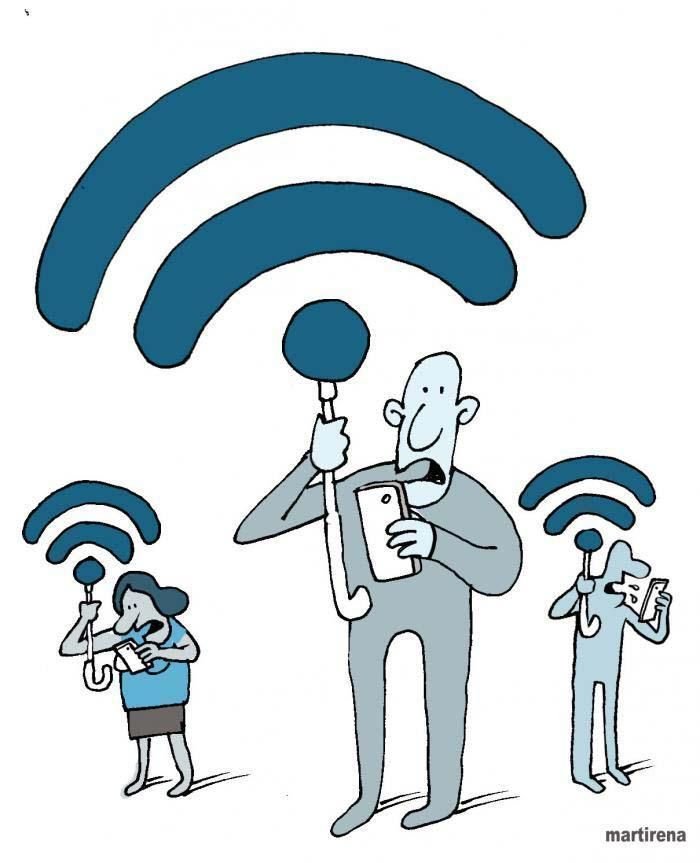
Although it is only in these times of increasingly widespread use of the Internet that the term, which used to be common only among sociologists and other social science professionals, has become popular, social networks have existed since human collectives first existed. Even other non-human groups also function as networks. Just look at an ant hill, a honeycomb… Their functioning is crucial for access to food, protection against other species, reproduction and for sharing essential information related to these vital activities.
In human societies, each individual already belonged to family networks, friendships, neighbors, co-workers or students, professionals, often overlapping, long before spaces such as Facebook or Twitter became commonplace.
However, the advent of the Internet has made tangible, and even capitalizable, what was previously invisible. By recording in the memories of powerful computers called servers, every search, every exchange, every publication of text, video or photos and those that interact with them, as well as the metadata that accompany them (date, time, sex, theme and geographical location of the participants, among others), in a space where every minute billions of these actions occur, the current development of computer tools to correlate them allows us to find and connect affinities at a speed that was unthinkable before.
This has given rise to companies known as “internet giants” or technology giants, whose potential lies precisely in capitalizing on these intangibles. Offering its users as advertising merchandise for other companies with an effectiveness that was unimaginable a few years ago, Facebook and Google have gone public for hundreds of billions of dollars. Fewer and fewer people are arriving at information by typing the address in their browser, the most common thing is to navigate through what a search engine like Google or the Facebook algorithm puts in front of us. Rather than surfing, we relate to internet applications that select for us virtual answers from the real world hegemons who paid for it.
For most people who use these two tools most of the time, the Internet is Facebook and Google, just as the operating system is synonymous with Android or Windows.
On May 18, 2012, a joint statement was issued by a group of civil society organizations to the United Nations meeting in Geneva for enhanced cooperation on public policy issues related to the Internet. It noted that “what was a public network of millions of digital spaces, is now largely a conglomerate of spaces of a few owners. Six years later, many people talk about Gafam (Google, Amazon, Facebook, Apple and Microsoft) as the giant that controls the global digital space from a single country.
Beyond the denunciations of its use for political and military domination, as a consequence of what the former National Security Agency analyst Edward Snowden has already revealed, the effectiveness that transnational companies which can pay for advertising acquired in national markets, micro locating audiences according to their characteristics, tastes, and needs, crossing national borders, is devastating.
With more than 4 billion Internet users, the battle between Google and Facebook to manage the connection of the remaining 3 billion Earthlings to “internet.org” (free access to the services of these companies, but charged when they leave these spaces) is on the rise. The policies that penalize external links at Mark Zuckerberg’s corporation, making them virtually invisible, while rewarding content that does not require users to leave the social network to access it, are a manifestation of this obsession with having users all the time in the space where each action produces metadata for the company.
Undoubtedly, the digital divide has been closing at a much faster rate than the radio or television. However, far from meaning a diversification of cultural consumption, this has deepened the chasm between the core production of content and services held by a few American companies and the rest of the planet, causing a growing homogenization.
In Latin America, of the 100 most popular sites, only 26% are of local origin and less than 30% are in the local language, and even though much of the latter is in Spanish, it is of American origin.
It is an everyday fact that an advertiser can now micro-localize in a network like Facebook or in the results of a search engine like Google the recipient of a message based on age, gender, geographic location and professional profile. This can be whether to position a product or news item, whether true or not, it’s just that you have to have the money to pay for it. This is absolutely legal and widely used, and has nothing to do with the recent scandals over the use of data derived from personal activity on Facebook to create political profiles of users associated with Cambridge Analytica.
Few countries have a critical demographic mass and language of their own that allows them to develop alternatives, such as China and Russia. Stanford University expert and professor Evgeny Morozov, not at all suspected of admiration for either country, pointed out ironically in 2015: “Notice the crucial difference: Russia and China want access to data generated by their citizens on their own soil, while the US wants access to data generated by anyone anywhere, as long as American companies manage it.
Processes such as Brexit, the election of Donald Trump or the response to the referendum on peace in Colombia have been impacted by these realities. The guarimbas of the first semester of 2017 in Venezuela, the defeat of the referendum for the re-election of Evo Morales in Bolivia, or the instantaneous deployment of violence in Nicaragua have had millions of dollars invested in social networks on the Internet.
The Internet is not the problem, but the economic and social inequality with which the hegemonies of the real world are transferred to virtual space, through money.
Tim Berners Lee, creator of the world wide web, on the occasion of the 28th anniversary of his invention in March 2017, expressed his “growing concern about three new trends” on the web: we have lost control of our personal information, it is very easy to spread misinformation on the web, and online political advertising needs transparency and understanding.
In 2016 Jonathan Albright, a professor at Elon University in North Carolina, published a map showing how, from the domain of Google’s search algorithm, the far-right colonized digital space much more effectively than the liberal left in the United States. Albright’s map, which followed 1.3 million hyperlinks, shows how a “satellite” system of right-wing news and propaganda (dark forms on the map) surrounded the dominant media system just in the year that Donald Trump reached the White House. Asked by The Guardian about how to stop this process, Albright replied: “I don’t know, I’m not sure if it can be done, it’s a network, it’s much more powerful than any actor.
“So it almost has a life of its own?” they asked him. “Yes,” replied the scientist, “and it is learning. It gets stronger every day.
What is the solution to this problem for a small country that does not want to be dominated by US hegemony? Can we flee from the social networks of the Internet? They are already part of the daily life of billions of people, of the majority of young people and of a growing number of Cubans. Can we create, without a critical demographic mass, national spaces that are exclusive as China does, that has more Internet users than the United States and Europe combined?
It does not seem to be viable, our alternative seems to be to network our values, to ask ourselves if the Cubans who carry them are the ones who have the best facilities to access the Internet, to make our media and our schools promote a culture of the use of these technologies that allows them not to be manipulated and that the institutional, political and social leadership is present and articulated in the network based on timely and quality information that is related to Cubans’ expectations and needs.
Why did Google get a license to enter Cuba?
Why did Google get a license to enter Cuba?
By Arthur González
June 9, 2018
Translated and edited by Walter Lippmann for CubaNews
Never before has the U.S. government allowed Internet access to Cuba, nor the use of under-sea cables that pass near its coasts or other facilities. Many Internet sites are banned from the island because of the 59-year economic war. However, Barack Obama approved a license for Google to enter Cuba. What were the reasons for that decision?
To help Cubans access more scientific, technical and other information to improve the Cuban economy?
Definitely not. Definitely not. Access restrictions still remain in many of these areas, the real objective was to reach Cuban youth with their distorted information, symbols, and values, as Obama himself stated:
“…we can do more to support the Cuban people and promote our values through commitment. “The changes introduced in our new policy will further enhance our goal of empowering the Cuban people. […] and provide them with new sources of information…”
Of course, Cuba must take advantage of this opening, however small it may be. [We want] to go out into the world and make our truth known, to defeat the media campaigns that overflow the network of networks with lies, such as false claims of violations of the rights of Cubans, to share Cuba’s achievements, achieved with effort and sacrifice, despite the damage caused by the criminal policies of the United States.
It is the opportunity to tell the world about the terrorist acts carried out by the U.S. government, the biological warfare which affected the people and the persecution of all the foreign banks and companies that try to establish business with Cuba.
In order not to be naïve, Cubans must be aware of what lies behind Obama’s [granting of the] license and why Donald Trump maintains it, despite having taken steps to dismantle many aspects of his predecessor’s policy, including the Presidential Directive, which sought to kill the people with honey, rather than with whips.
During his presidential campaign, Donald Trump took on the reactionary and ultraconservative language embodied in the Republican Party Platform, which sets out, among other things, the following points:
“The opening of the current Obama administration to Cuba was a shameful accommodation to the demands of the tyrants. They will only strengthen that military dictatorship. […] We demand an aerial platform for Radio and TV Martí broadcasts, and the promotion of Internet access as a technological tool to strengthen the pro-democracy movement in Cuba.”
Since his arrival in the White House, Trump has delivered on his campaign for the presidency, but he has not changed the license granted to Google for Cuba. In recent days he allowed Google’s executive president, Eric Emerson Schmidt, to travel to Havana in the company of Republican Senator Jeff Flake. Their background speaks for itself.
In 1996, the RAND Corporation of the United States National Defense Research Institute conducted a study for the Defense Department entitled “Cuban Communications, Computer Networks and their Implications for U.S. Policy.
That work puts forth the need to help open up Cuba and to force the emergence of an independent civil society, for which it states:
“It is necessary to encourage Cuba’s link to the Internet, to use it to transmit balanced news and analysis, to promote its use by Cuban NGOs, universities and other audiences.
Insisting on that, in March 2005, ultra-conservative Roger Noriega, Under Secretary of State for Western Hemispheric Affairs, testified at a congressional hearing:
“The United States has relaxed licensing requirements so that, for the first time, high-speed personal computers can be delivered to civil society groups.
During an event held in 2012 at the Heritage Foundation, in conjunction with Google Ideas, a report was prepared recommending that the U.S. government create a remote WIFI network to enable Cubans to access the Internet.
In that gathering Republican Senator Marco Rubio was present. He said:
“The Cuban totalitarian system could collapse if all Cubans had free access to the Internet, because Cuba would follow the same fate as those countries that spent the Arab Spring.
The State Department announced on June 13, 2013, proposed projects to promote democracy and human rights in Cuba, including the use of digital tools to be used, selectively and safely, by the civilian population, along with other programs to promote equality and defend the social networks of black Cubans.
Programs created for subversion in Cuba such as Zunzuneo and Conmotion, the latter designed by the Open Technology Institute at The New America Foundation, were promptly denounced.
We welcome full access to the Internet, because Cubans are sufficiently prepared to know how to differentiate between the useful and the subversive, but in the face of an enemy that has not stopped attacking for more than half a century, we must always be alert and, as José Martí said:
“Do at every moment what is necessary at every moment”
Five Million Cell Phone Lines

Five million cell phone lines already active in Cuba
This figure confirms the growing evolution of mobile telephony on the island in recent years
By Juventud Rebelde digital@juventudrebelde.cu
Published: Thursday 12 April 2018 | 02:08:31 AM
A CubaNews translation. Edited by Walter Lippmann.
At press time, it was announced that a customer had signed a contract with a commercial unit of the Cuban Telecommunications Company (Etecsa) in Guanabacoa, in the eastern part of Havana, with whom the country has five million active mobile line services. According to information provided by Etecsa’s Institutional Communication Department, this figure confirms the growing evolution of mobile telephony on the island in recent years. Keep in mind that in December 2003 there were only 43,000 active mobile lines, by April 2008 the number of these had risen to 223 000, by March 2014 it had reached 2 million, by December 2016 it had reached 4 million, and 2017 closed with 4.22 million of these services.
Samsung’s smart TVs spy on their customers

As in the novel ‘1984’:
Samsung’s smart TVs spy on their customers
Owners of the Samsung ‘Smart TV’ should watch their words in their own home if they do not want to disclose personal information.
Author: Redacción Digital | internet@granma.cu
Translated and edited by Walter Lippmann.

Samsung Smart TV. Photo: RECOMBU.com
Samsung’s privacy policy regarding Smart TV technology warns that its television sets ‘listen’ to every word of the customer and advises users not to talk about personal or confidential information near their television sets.
Please note that if your words include personal or confidential information, that information will be among the captured data and will be transmitted to a third party through the Voice Recognition function “, says the privacy policy of the company on their smart TVs.
“Although Samsung does not record its pronounced words, it can collect associated texts and other data,” explains the company, which clarifies that it will use it “to be able to evaluate the performance of the function and improve it.”
In short, owners of Samsung’s ‘Smart TV’ watch what they say in their own homes.(Taken from RT)
Cubadebate exceeds three million visits

Cubadebate exceeds three million visits per month for first time
A CubaNews translation by Walter Lippmann.
At the end of May 2017, our site Cubadebate exceeded three million visits for the first time in a month the number of 3,223,174, despite the technical difficulties we have faced with our servers in recent days.
Cuba was the country that received the most visits with 2,218,591 and received another million visits from the rest of the world.
Cubadebate reached one million monthly visits in 2012 and two million in 2015. For several years, Cubadebate has been the medium of communication, including international ones, best placed in the well-known Alexa ranking for Cuba. In turn, it is the Cuban best located in the Alexa World Ranking, now in the position 6 thousand 361.
On its Facebook homepage, which has more than 437,000 followers, Cubadebate received in May 783,154 interactions and 1.4 million video views. In Youtube 685,560 views were reached in the month, while on Twitter, the main account of the site has 253,135 followers.
Our team appreciates the visits and interactions of our followers; And aims to continue to grow as a communications product, despite shortages and difficulties, always with the input of all of you.
Follow us on Facebook: @cubadebate
Twitter: @cubadebate
Youtube: Cubadebatecu
Subscribe to Blog via Email
| M | T | W | T | F | S | S |
|---|---|---|---|---|---|---|
| 1 | ||||||
| 2 | 3 | 4 | 5 | 6 | 7 | 8 |
| 9 | 10 | 11 | 12 | 13 | 14 | 15 |
| 16 | 17 | 18 | 19 | 20 | 21 | 22 |
| 23 | 24 | 25 | 26 | 27 | 28 | |



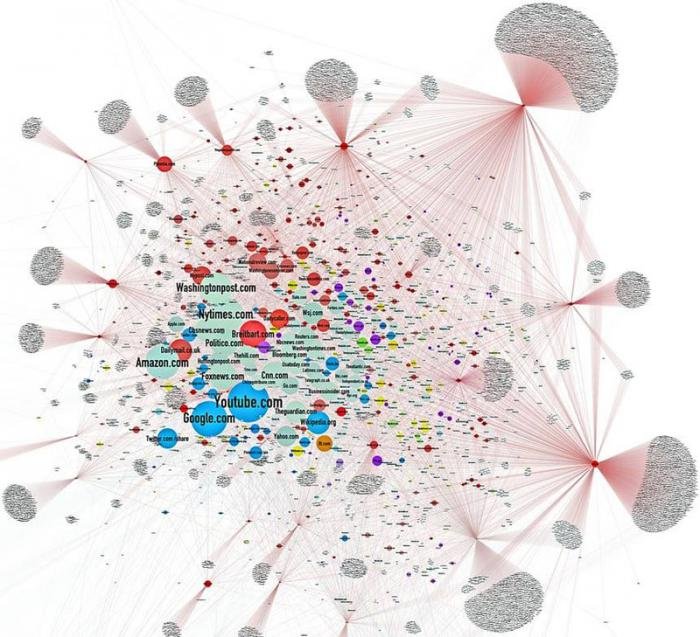
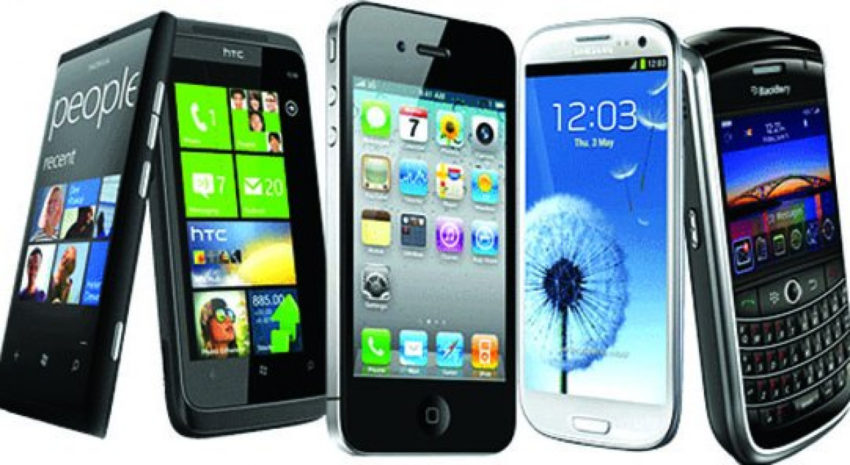
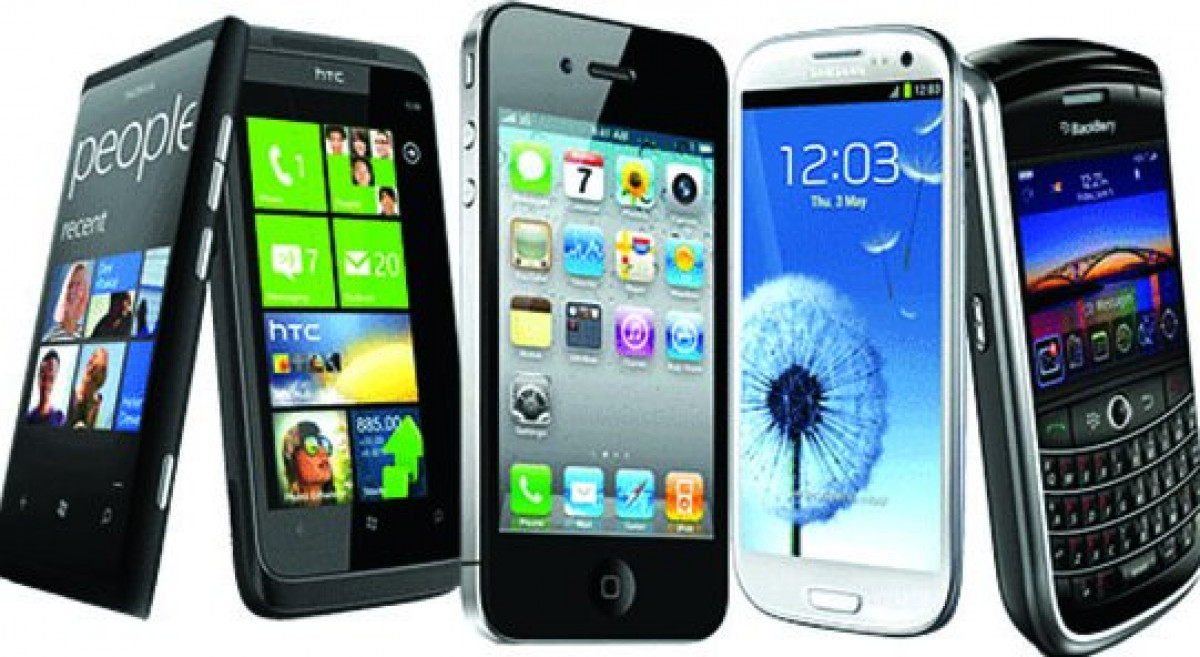
You must be logged in to post a comment.